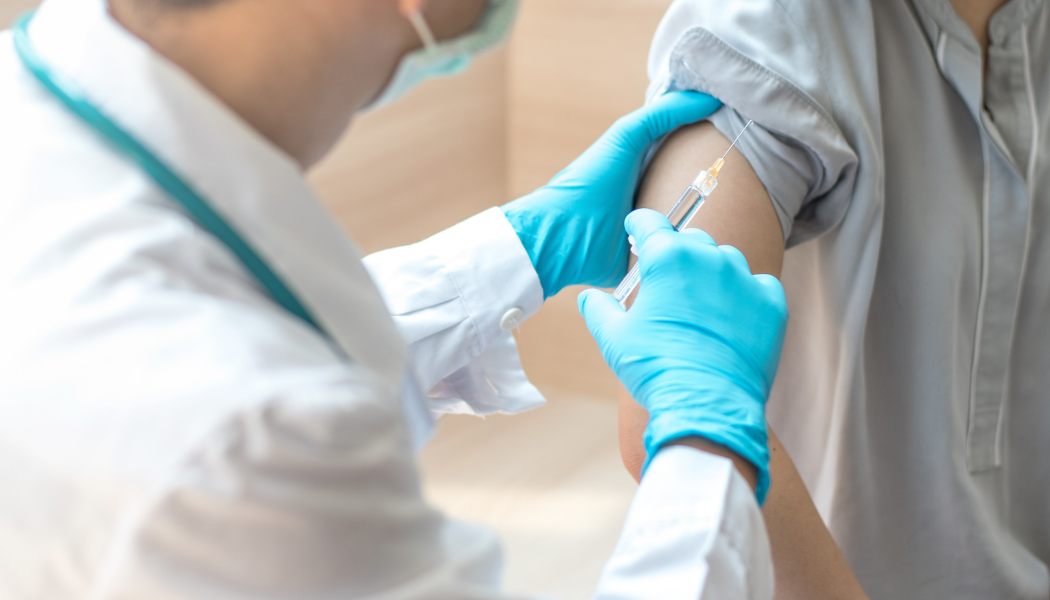Flu Shots and COVID-19 Vaccine Booster: What Cancer Patients Need to Know

However, this year, the calls for flu vaccines are stifled amongst talk of COVID-19 vaccines and boosters. It can be a little overwhelming, so National Foundation for Cancer Research is breaking it down to help cancer patients safely navigate vaccines and flu season.
First things first – do I need both the COVID-19 booster and the flu shot?
Those who can, are highly recommended to receive both the COVID-19 booster and the flu shot. This guidance is particularly important for cancer patients because of their compromised immune systems. Immunocompromised individuals’ bodies are so busy fighting cancer that fighting off viruses is more difficult than normal.
Having cancer or being a cancer survivor does not make a person more likely to catch other illnesses, but it can increase their chances of developing some of the more severe complications associated with the illness. Each vaccine protects against the specific virus it was developed for, be it COVID-19 or influenza, so only receiving one will leave patients vulnerable to the other.
What’s the difference between a COVID-19 booster and a third dose?
A third dose of the COVID-19 vaccine follows the initial two-dose vaccine series for people who may not have mounted a strong enough immune response after receiving the initial vaccine series.
The Food and Drug Administration (FDA) and Centers for Disease Control and Prevention (CDC) have authorized additional doses of Pfizer and Moderna’s COVID-19 vaccines for severely immunocompromised individuals.
A booster, however, is a supplemental dose given to groups whose immune response has waned over time.
If I already had the virus, do I still need a vaccine/booster?
Someone who had the flu can still get sick again during the same season. In fact, the second case of influenza can be just as severe as the first, and you could suffer from other complications, such as pneumonia. Similarly, it is never too late in the flu season to get the flu shot.
Similarly, those who have had COVID-19 should still seek vaccines and the booster (if applicable). Research has shown that COVID-19 infection before double vaccination provides much greater protection, but there is still risk in not receiving the vaccine.
Who can get these vaccines?
The flu vaccine is available for anyone over six months, with a few exceptions. People with severe, life-threatening allergies to any ingredient in a flu vaccine (other than egg proteins) or people who have had a severe allergic reaction to a dose of the vaccine in the past may not be advised to receive the shot.
As for additional COVID-19 vaccines/boosters, the CDC currently recommends that moderately to severely immunocompromised people receive an additional dose. This population includes those who have:
- Been receiving active cancer treatment for tumors or cancers of the blood
- Received an organ transplant and are taking medicine to suppress the immune system
- Received a stem cell transplant within the last two years or take medicine to suppress the immune system
- Moderate or severe primary immunodeficiency (such as DiGeorge syndrome, Wiskott-Aldrich syndrome)
- Advanced or untreated HIV infection
- Active treatment with high-dose corticosteroids or other drugs that may suppress your immune response
If you or your loved ones are still concerned or have questions about the COVID-19 booster and/or the flu vaccine, consult with your doctor for more information.
A world without cancer is possible. Help us turn lab breakthroughs into life-saving realities.

5.7 Million+
Donors who have fueled NFCR’s mission

$420 Million+
Invested in high-impact research & programs

36+ Labs & Hundreds of
Nobel Laureates & Key Scientists received NFCR funding, driving breakthrough research












